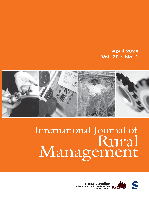The 2030 Agenda for Sustainable Development includes Goal 6 (SDG 6): ‘Ensure availability and sustainable management of water and sanitation for all’. SDG target 6.1 aims to achieve by 2030 ‘universal and equitable access to safe and affordable drinking water for all’. The Government of India has also launched the Jal Jeevan Mission (JJM) to provide potable tap water to every rural household by 2024. In this context, this article explains the findings of a study to assess the domestic water demand and the availability of water in seven villages in the Ballari and Raichur districts in North Karnataka. This study indicates that groundwater is predominantly used for domestic purposes in these districts due to the lack of adequate and reliable surface water. Only 14% of households in the study area receive adequate water as per the JJM norms and this water stress is projected to worsen due to the increasing supply–demand mismatch in the future. The authors recommend the implementation of the revised configuration of the Krishna (Almatti)–Pennar river interlinking project by 2030 since this alignment is optimised to reduce project-related deforestation, people displacement, project duration and costs. This is critical for the sustainable development of North Karnataka.

